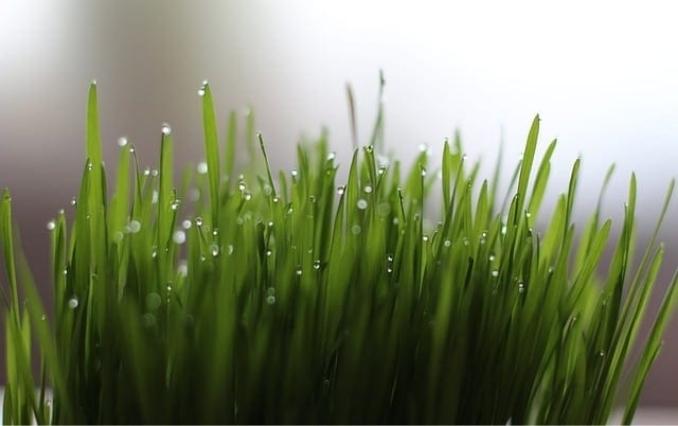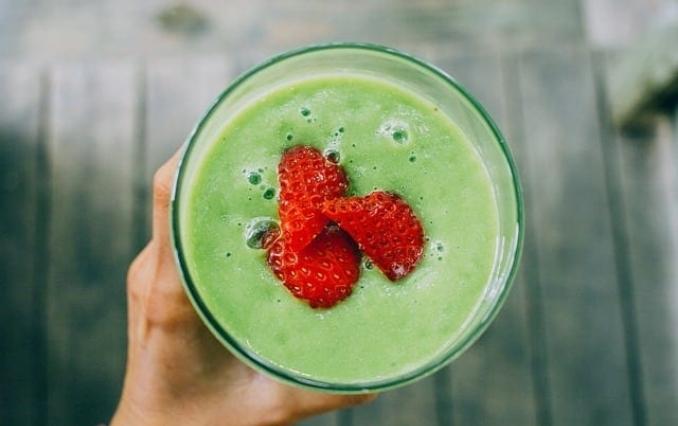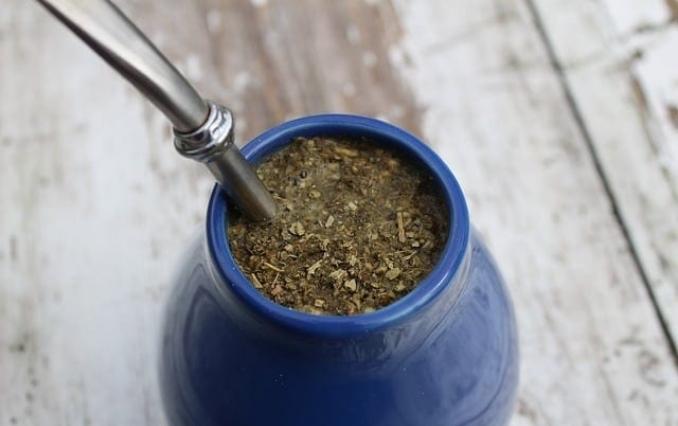
Recent research has found that coffee can be good for you. It’s been found to reduce the risk of Parkinson’s disease, type 2 diabetes, Alzheimer’s disease, liver cancer, depression and stroke, among others. Scientists have linked the benefits to both the antioxidants in the coffee beans and the caffeine content.
However, some folks don’t get along well with coffee. It is an acidic drink, so it can cause stomach upset at times, particularly in older individuals and those who are sensitive to it. The caffeine can also cause side effects, including headaches, jitteriness and insomnia.
If you’re one of those who likes a pick-me-up beverage now and then, but would rather not drink coffee, we’ve got eight healthy alternatives that may fit the bill.
1. Green Tea
Green tea has less caffeine than coffee, but it gives you a little — about one-third to one-half that found in coffee — so it can still be energizing. Drink a cup of this and you’ll set yourself up for a healthier day as green tea is full of disease-preventing antioxidants. It’s brewed from the same leaves as black tea (Camellia sinensis), except the leaves are less processed and contain more healthy nutrients. Green tea leaves are steamed and dried after harvest whereas black tea leaves are dried and crushed first.
The National Cancer Institute states that the plant ingredients in green tea (polyphenols) decreased cancer tumor growth in studies and protected cells from ultraviolet radiation. Other research has linked regular intake of green tea with lower rates of several types of cancer, including breast, lung, skin, prostate and colorectal.
In 2006, green tea consumption was associated with reduced mortality due to all causes and due to cardiovascular disease. In 2011, researchers reported that green tea could help reduce LDL “bad” cholesterol levels, while other studies have found links between the tea and enhanced working memory.
2. Wheatgrass Juice
Wheatgrass is actually wheat (Triticum aestivum), only harvested when it’s younger than usual. Instead of waiting for the grain to develop, farmers harvest the plant when it’s still in grass form. It’s then crushed and squeezed to make a juice, and it can also be dried and converted into a supplement.
The juice is a natural source of many nutrients, including vitamins A, B, C, E and K as well as minerals calcium, selenium, magnesium and iron. It contains chlorophyll — the substance that makes plants green — that works as an antioxidant in the human body and may help to boost energy.
Wheatgrass is also a good source of fiber and may help promote healthy digestion. Some studies have found that it may be useful in treating some inflammatory bowel diseases like ulcerative colitis. It has antimicrobial properties that may be useful in infections with one laboratory study finding that it could help fight strep infections and the bacteria that cause dental infections.
3. Chai
Chai is a warm drink from India made with black tea, milk and spices. Originally called “masala chai,” which in Hindi, means “spiced tea,” it’s thought to have been around for thousands of years. The spices vary, with the most common including cinnamon, ginger, pepper, cardamom and cloves. People in India drink it regularly, but it’s still seen as a sort of “treat” in the Western world, although it’s become more popular in the past decade.
Because chai is made with black tea, it has some caffeine to get you going. However, as with green tea, chai only has about one-third to one-half of the caffeine that coffee has. It has all the health benefits of black tea, which include antioxidant protection, reduced risk of heart disease and even some anticancer activity. Then, you’re getting the health benefits of the spices as well, which can be impressive. Cinnamon, for one, has been linked with helping to balance blood sugar while reducing inflammation. Cardamom aids digestion and boosts the immune system. Ginger also aids digestion, reduces inflammation and may help reduce the pain of arthritis.
Unfortunately, if you buy a cup of chai at your local coffee shop, you may be getting more sugar than is good for you. A large (16-ounce) Classic Chai Tea Latte from Starbucks will give you a whopping 42 grams of sugar — the American Heart Association recommends only 37.5 grams per day for men and 25 grams for women.
Over-the-counter chai mixes can also be sugar-heavy, so you need to be cautious. Look for more traditional ingredients and you’ll enjoy the energy boost and the health benefits. Even better, make your own chai at home with black tea, low-fat milk or almond milk and spices, along with some stevia (natural no-calorie sweetener) or honey. Alternatively, ask your coffee shop for a simple chai brewed tea, then add your own milk, cinnamon and sweetener. You can also look for “skinny” chai tea seasoning mixes.
4. Green Smoothie
These can be energizing and healthy if you mix them up without too much sugar. Simply cut up your favorite vegetables, add in a piece of fruit or two and mix in your blender. You can chill it overnight and enjoy first thing in the morning, and you’ll stack up several of your daily fruit and veggie servings before you even walk out the door.
Green smoothies are excellent for your health because they’re full of all the nutrients and antioxidants that the natural ingredients contain. Scientists have linked a diet rich in fruits in vegetables to a reduced risk of several diseases, including heart disease, cancer, diabetes and more.
This drink can be especially great for you if you’re not a natural veggie lover. If you tend to turn up your nose at the spinach, green beans or broccoli on your plate at dinner, simply chop them up and put them into your morning smoothie along with an apple, pear or banana, and you may find that you actually like them.
For optimal health, try to make sure your smoothie contains mostly veggies with just a little fruit to keep the total sugar level low. For an added health kick, add in a powdered supplement like protein, spirulina or matcha green tea powder.
5. Yerba Mate
This is an herbal tea made from the leaves of the yerba mate plant. The leaves are harvested and dried similar to black tea leaves, and then steeped in hot water to make the tea. It’s very popular in South America, where the people have unique gourds with metal straws that they use to drink the water strained from the leaves.
North America has fairly recently caught on to the benefits of yerba mate. It tastes like green tea, only a bit more powerful, and typically has more caffeine than tea but about half the amount of coffee. It also delivers vitamins B and C and minerals like magnesium, phosphorus and magnesium.
Studies have found that consuming yerba mate before exercise can increase performance, and it’s also linked to reducing fatigue and boosting energy, although in a smoother, more balanced way than a coffee does. If you need to be alert first thing in the morning, this may be your best option as it has also been found to enhance mood, memory and alertness.
6. Peppermint Tea
If you like the cool, refreshing taste of peppermint, and you’re going through a stressful time, try this for your morning drink. The tea comes from the peppermint herb, which grows to 2-to-3 feet tall and sprouts purple to white flowers. The most popular of all the mint species, peppermint is caffeine-free and is most popular for its ability to ease digestion, which is why many restaurants give you a peppermint candy after dinner.
Peppermint has a number of other health benefits, as well. A 2006 study noted that it not only relaxes digestive tissue but it also has a similar aesthetic effect on the nervous system, so it may help you stay calm as you make that morning presentation at the office. It can also help treat menstrual cramps (that same relaxing effect) and can increase alertness and memory. One added benefit — you’ll head off on your day with fresh breath!
7. Teeccino Herbal Coffee
Have you heard of this one? It’s a caffeine-free herbal beverage made to satisfy the taste buds of coffee lovers. If you have to give up your coffee for health reasons and you miss the taste, this may be the best alternative for you. There are a number of flavors available, from those that are full-bodied and complex with a sweet and nutty taste, to those that are more intense like black coffee without the sweetness.
The product comes in grounds similar to coffee grounds, but with ingredients like carob, chicory, dandelion root, nuts, dates and figs. Some have natural coffee flavor without the coffee, along with grains like barley to add to the experience. Most of the ingredients are organic without any added sugar or alternative sweeteners.
When enjoying a cup, you also get the health benefits of the herbs, grains, fruits and nuts, but the product lacks the acid content of coffee, so will likely be easier on your digestion.
8. Dandelion Root Tea
This is another great option if you’re missing the dark flavor of coffee. In fact, the beverage is so similar to coffee that, in some localities, it’s even called dandelion coffee. The roots are harvested, then dried, chopped and roasted. Finally, they’re ground into granules that are steeped in boiling water to make the tea.
You may think of dandelions as just pesky weeds, but they actually have many health benefits — when they’re not sprayed with pesticides! The roots alone contains healthy antioxidants, flavonoids, vitamins, minerals and other nutrients that are good for you. Dandelion has a long history of use as a way to maintain liver health, with a 2017 study showing that the polysaccharides from the root could protect the liver from medication-induced liver injury.
Some studies have linked dandelion to an increased breakdown of fat, so scientists are looking into it to see if it may help with weight loss. It also seems to stimulate digestion.
For your guide to the best foods to heal your body, check out The Best Foods that Rapidly Slim & Heal in 7 Days, here!





